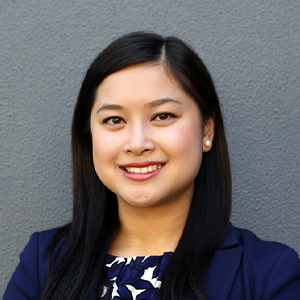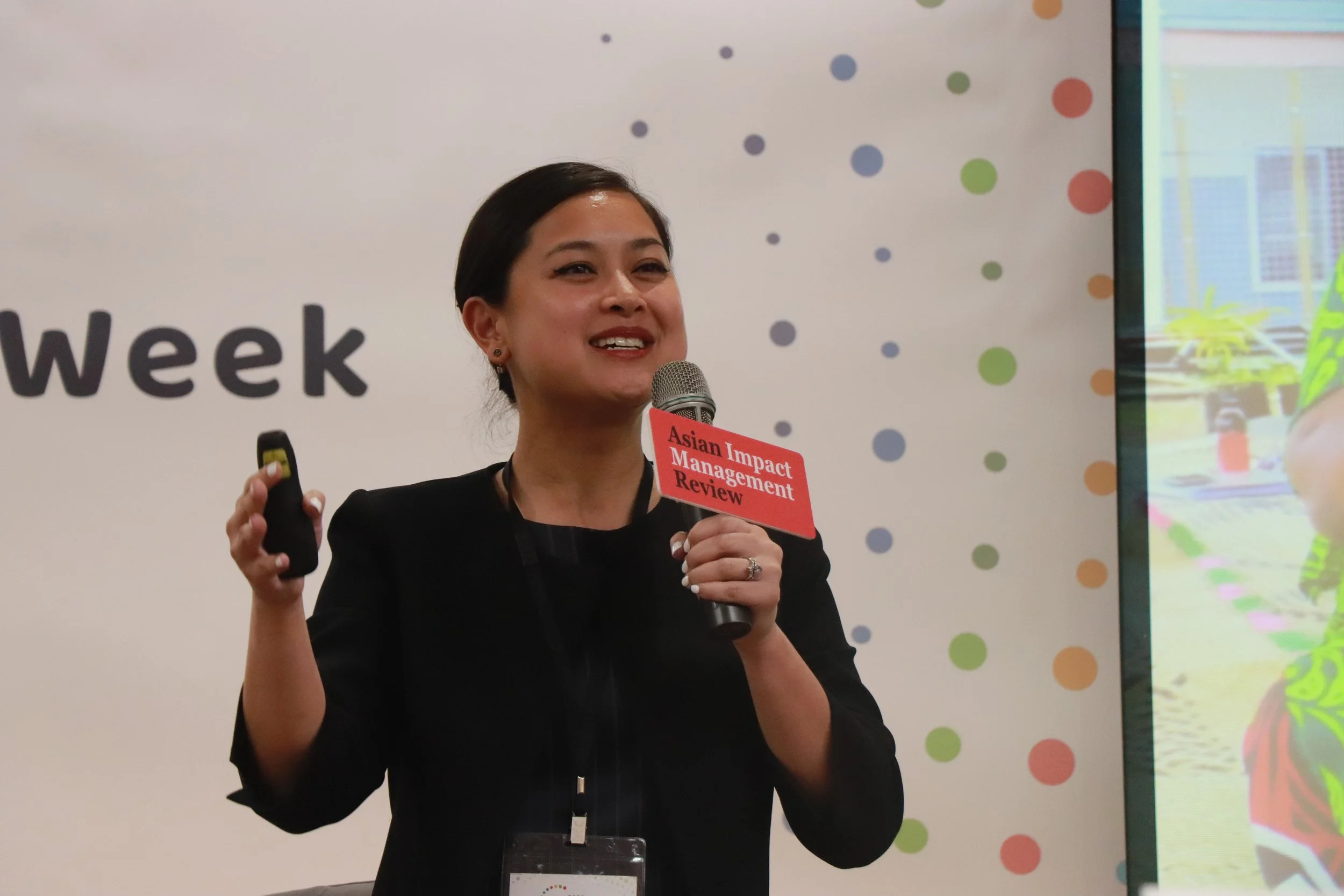Balancing the opportunity scale: How women’s economic empowerment benefits everyone
Balancing the opportunity scale: How women’s economic empowerment benefits everyone
By Diana Tjoeng, Head of Asia & Impact Investments at Good Return
Diana Tjoeng, Good Return
Too often, discussions about gender equality and women’s economic empowerment focus on only one side of the equation. The conversation centres on the barriers women face; success measured solely on women’s achievements. But what if we shifted our perspective? What if we see women’s economic participation as a catalyst for broader progress? What if we recognised that breaking down stereotypes that limit women also translates into freedom and success for men, families, and entire communities?
My interpretation of gender equality was shaped by my background and upbringing. Growing up in Sydney with a Cambodian mother and an Indonesian-Chinese father, I had strong role models who defied societal gender norms. My mother, a refugee, came to Australia as a teenager on one of the last planes out of Phnom Penh before the Khmer Rouge takeover. She spoke little English, and worked as a cleaner to survive. Over time, she put herself through university and became a lawyer. Meanwhile, my father - who worked and also shared household responsibilities equally - instilled in me the belief that gender roles are not fixed, and that equity begins at home. I was always surprised when I visited a friend’s house and it wasn’t their father doing the laundry.
In my professional career I have encountered inspiring women in business - aquaculture farmers in Cambodia, organic soap manufacturers in Fiji, fintech developers in Indonesia. I have seen that when a woman thrives financially and economically, her household, community and, ultimately her economy, thrives. This includes the men in her life - husbands, brothers, team members - who are then given the freedom to look at different options for their own careers, are able to share the load of financial decision making and try different family and caring roles. When women break free from limiting gender roles, men do too — and future generations are inspired to dream bigger.
Financial barriers and the power of access
It is for this reason that Good Return works to build opportunities for women entrepreneurs across the Asia-Pacific. We have seen the potential when women succeed in business, but we also see the barriers holding them back - the lack of collateral needed for loans, official identification to open bank accounts, or the literacy skills to navigate financial systems. Discrimination within the financial system is rife, and in many countries women-led businesses are not considered viable investment options. The result? Nearly one billion women worldwide lack access to financial services.
I recently met Voucheang Loa, a Cambodian farmer who had been growing and selling tomatoes and cabbages for seven years. She had noticed that the hot season was getting longer, jeopardising her crops. With an AUD$8,000 loan from Good Return’s partner Wing Bank - made possible through our Impact Investment Fund - she built a greenhouse to protect her seedlings and boost her harvest.
Voucheang measured her success not on her personal income but on fulfilling her and her husband‘s dream of building their farm to support their children's education. Voucheang also measures her success on community impact - seeking to share her learnings about crop resilience, and demonstrate to her neighbours that women can drive their own business growth.
Balancing the system
For women to truly flourish in business, we need to change mindsets and practices within the financial sector so they take on women as valid clients. However breaking gender norms within finance is not simply about placing more women in leadership roles (although this is much-needed). It means considering the roles of men and women and how they can be part of balancing the gender equation. When I’ve spoken with financial institution staff in Asia and asked, "If a man wants to work in Marketing or HR, should he be able to?" sometimes there is hesitation - an underlying belief that men entering these fields might be "taking away" the few opportunities available to women. But when certain careers in finance are seen as "for women", it closes doors for both men and women to reach their full potential.
Similarly, changing mindsets within the financial sector involves working with both men and women to look at existing practices and policies. Good Return’s Impact Investment Fund 2 includes a technical assistance facility that trains financial institutions in gender-inclusive practices. It helps teams to assess their internal systems and uncover gaps like whether they have policies on sexual harassment in the workplace, whether gender roles can be openly discussed in the organisation and if both men and women can apply for the products they have on offer. We assist them to develop policies, instate internal gender champions and host regular training sessions to ensure gender equality is front of mind. When both men and women feel empowered to create change within their own organisations, they are more likely to meet the needs of all prospective clients in their community, rather than maintaining a narrow view of who may or may not be financially capable.
Helping investors to broaden their impact
Nizrat Nazeen, soap manufacturer in Fiji
Including more women in the entrepreneurial ecosystem shifts investment thinking. It encourages investors to embrace broader measures of success — balancing traditional metrics like growth and profit with values such as community impact and sustainability. This shift opens the door for investors to reflect on the legacy they want to leave, whether through stronger outcomes for families, marginalised groups, or the planet. In the long term, it can also create space for male entrepreneurs to align their business goals with personal, family, and community needs.
Nisrat Nazeen is a successful organic soap manufacturer in Fiji ready for investment to enable her to scale and reach regional markets outside her own town. Success for her though is not only about selling more - it is also about ensuring she can make time to look after her son and help him with schoolwork. She also wants to make sure she can continue to use organic products and reduce her impact on the land she works on. Similarly, Kathleen Cox is an Indigenous entrepreneur running an eco retreat in the remote Kimberley region of Australia. Success to her is about keeping the ecological footprint of her business to a minimum, focussing on better guest experiences and less on physical growth of her property. When we talk to investors about Good Return’s Impact Investment Fund, we find they are excited by the combination of a financial return and the opportunity to fund socially-minded businesses.
Achieving gender equality in business and finance won’t just remove obstacles for women, it will benefit entire communities. By shifting our perspective, seeing gender equality as a collective opportunity, we can foster an inclusive future that accelerates economic progress. The next step is not just to support women, but to transform the systems around them, ensuring that gender equality is embedded at every level of financial decision-making, from local banks to global investors.
Diana Tjoeng
Diana Tjoeng is the Head of Asia & Impact Investments at Good Return, leading the design of the organisation’s second impact investment fund. She has worked across financial services, digital innovation, and gender equality, with a focus on inclusive economic development in the Asia-Pacific region. To find out more about Good Return’s Impact Investment Fund 2 visit: https://goodreturn.org.au/impact-investing



